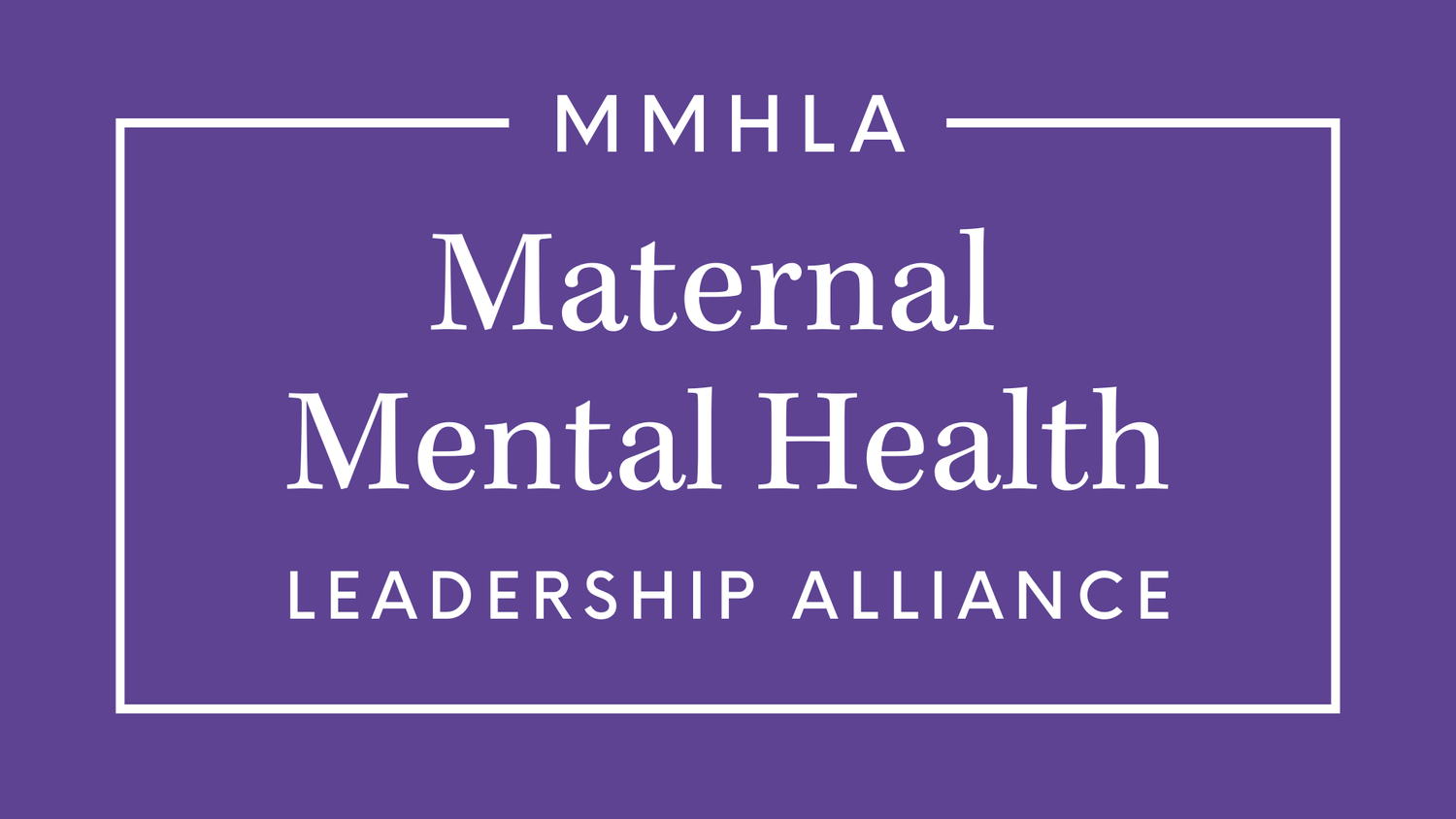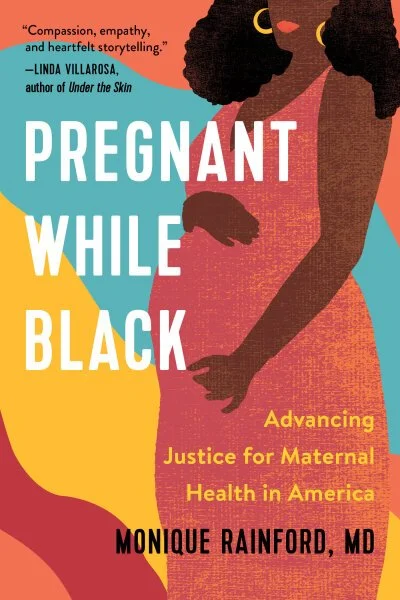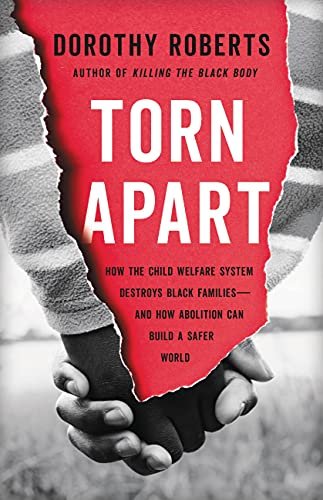Black Women, Birthing People, and Maternal Mental Health Fact Sheet
We are committed to curating the latest information in perinatal mental health to help educate healthcare professionals, birth workers, and policymakers. This fact sheet is the screen reader version for those who prefer to consume their information in this format. We also have a PDF version available with the same information.
Download a PDF version of the Black Women, Birthing People, and Maternal Mental Health Fact Sheet.
Key Facts: Maternal Mental Health (MMH) Conditions
1 in 5 Mothers Are Impacted by Mental Health Conditions
Maternal mental health (MMH) conditions are the MOST COMMON complication of pregnancy and birth, affecting 800,000 families each year in the U.S. [1,2]
Mental Health Conditions Are the Leading Cause of Maternal Deaths
Suicide and overdose are the LEADING CAUSE of death for women in the first year following pregnancy. [3]
Most Women Are Untreated, Increasing Risk of Negative Impacts
75% of women impacted by maternal mental health conditions REMAIN UNTREATED, increasing the risk of long-term negative impacts on mothers, babies, and families. [4]
$14 Billion: The Cost of Untreated Maternal Mental Health Conditions
The cost of not treating MMH conditions is $32,000 per mother-infant pair, or $14 BILLION each year in the U.S. [5]
It's Not Just Postpartum Depression: There are a Range of MMH Conditions
MMH conditions can occur during pregnancy and up to one year following pregnancy and include depression, anxiety disorders, obsessive-compulsive disorder, post-traumatic stress disorder, bipolar illness, psychosis, and substance use disorders. [6]
Learn More about Maternal Mental Health Conditions
Learn more about maternal mental health conditions with our Maternal Mental Health Fact Sheet.
Key Facts: Black Women, Birthing People, and Maternal Mental Health
Black women experience maternal deaths at 2-3 times the rate of white women. [7,8]
Hoyert, Donna L. (2023, March). Maternal Mortality Rates in the United States, 2021. NCHS Health E-Stats. 2023. DOI: https://dx.doi.org/10.15620/cdc:124678.
Almost 40% of Black mothers will experience maternal mental health conditions. [9,10]
Black women are twice as likely as white women to experience MMH conditions but half as likely to receive care. [10, 11]
Single Black mothers are six times more likely than the general population to experience depressive symptoms. [9]
Additional Factors Impacting Black Women and Families
Social Determinants of Health (SDOH)
SDOH are the conditions in the environments where people are born, live, learn, work, play, worship, and age. SDOH affects a wide range of health, functioning, and quality-of-life outcomes. Black people are disproportionately impacted by SDOH, which include [19]:
Safe housing, transportation, neighborhoods
Racism, discrimination, violence
Education, job opportunities, income
Access to nutritious foods and physical activity opportunities
Polluted air and water
Depression May Look Different in Black Women
Black women experiencing depression are more likely to report irritability, self-criticism (e.g. self-hate or self-blame) and somatic symptoms such as fatigue, insomnia, and decreased libido rather than stereotypical depression symptoms such as feelings of hopelessness or depressed mood.
They also reported experiencing anhedonia, an inability to experience pleasure. It is important to recognize how depression manifests in Black women to be able to properly screen and provide mental health support. [15]
Weathering
Black women experience physical “weathering,” meaning their bodies age faster than white women due to exposure to chronic stress linked to socioeconomic disadvantage and discrimination over the life course. Weathering can make pregnancy riskier for Black women at an earlier age and can also lead to Black women experiencing more chronic health conditions, such as diabetes and obesity. [16]
The Superwoman Schema
The Superwoman Schema is a conceptual framework that states that certain socio, cultural, and historical perspectives in the United States have impacted how Black women experience and handle stress, with Black women taking on the following coping characteristics: obligations to manifest strength, suppress emotions, and help others, even to the detriment of personal health; resistance to being vulnerable or dependent; and a determination to succeed despite limited resources. [17]
Assessing Maternal Mental Health Conditions in Black Women
Current screening tools for MMH conditions do not take into account these additional factors that impact Black birthing people. Thus to properly assess for MMH among Black birthing people, providers should consider utilizing screening tools such as the Jackson, Hogue, Phillips Contextualized Stress Measure (JHP), a measurement of racial and gendered stress, and the Perceived Stress Scale (PSS), an assessment of global stress. [20]
The Momnibus was first introduced in Congress in 2021 and consisted of 12 separate bills to improve maternal health, particularly among communities of color. Only one provision was enacted: The Protecting Moms Who Serve Act. Legislators reintroduced the Momnibus bills in May 2023 to continue to address the maternal mortality crisis in our country which disproportionately impacts Black women.
Factors that Increase Maternal Mental Health Conditions Among Black Women and Birthing People
Systemic racism
Socioeconomic status
Exposure to violence and trauma
Gaps in medical insurance
Adverse childhood experiences
Lack of representation in the medical system
Higher risk of pregnancy and childbirth complications
Lack of access to high-quality medical and mental health care
Barriers Black Women Face in Accessing Maternal Mental Health Care
Systemic and Interpersonal Racism
The cumulative effect of systemic and interpersonal racism takes a toll on the physical and emotional health of black women. Stress, anxiety, and fear all increase the likelihood of developing MMH conditions. [8,12,13]
Distrust of the Healthcare System
Historically, many Black people have been mistreated and harmed by medical providers, creating deep mistrust of the health care system. [9,12]
Shame and Stigma
The pressure of social stigma encourages Black women to keep their problems private to avoid appearing crazy, weak, or lacking faith. Having to be a “strong Black woman” prevents many women from seeking help. [10,11,12]
Logistical Barriers
Issues such as transportation, time off from work, and childcare can prevent women from seeking care. [10,11]
Screening Tools
Most mental health screening tools were developed based on primarily white research participants. These tools do not assess for physical symptoms, which Black women often use to describe their feelings of depression. [14]
Family Policing and Separation
Black families are disproportionately investigated by Child Protective Services: in the 20 most populous counties in the country, the mean rate of CPS investigations was 34%, but ranged from 40% to 70% for Black children. Family policing and separation contribute to the chronic stress that Black women and families face, and can deter a Black mother’s willingness to seek out mental health care and treatment. [10,11,18]
Strategies to Remove these Barriers
[8,10,13]
Acknowledge the role of racism and cultural oppression.
Build long-term, respectful relationships with community organizations and leaders.
Retrain and educate current health care professionals on culturally appropriate mental health curriculum.
Support and uplift the solutions from patient advocacy groups along with grassroots and community-based organizations.
Provide culturally based or culturally relevant or culturally appropriate social support for pregnant and postpartum people.
Create mental health screening tools that are designed for women of color and screen universally.
Support political and economic policies that help empower communities of color.
Create and provide services informed by cultural humility and holistic care.
Embed diversity in the maternal and mental health care teams.
Learn More from Organizations Led by and for Black Women
Recommended Reading
By Monique Rainford
By Arline Geronimus
Don’t want to miss another fact sheet? Sign up for our newsletters!
Editorial Team
This Fact Sheet was prepared by Niaja J.E. Nolan, MPH and former MMHLA Graduate School Intern, with input and assistance from CDU Black Maternal Health Center of Excellence, Krystal Leaphart, Senior Policy Analyst at National Birth Equity Collaborative, and Terri Wright, PhD, MPH. This fact sheet was funded by grants from the California Health Care Foundation and the W.K.Kellogg Foundation.
Citations
Fawcett, E., Fairbrother, N., Cox, M., White, I., & Fawcett, J. (2019, July 23). The prevalence of anxiety disorders during pregnancy and the postpartum period: A multivariate Bayesian meta-analysis. The Journal of Clinical Psychiatry. Retrieved April 23, 2023, from https://pubmed.ncbi.nlm.nih.gov/31347796/.
Gavin , N., Gaynes, B., Lohr, K., Meltzer-Brody, S., Gartlehner, G., & Swinson, T. (2005, November). Perinatal depression: A systematic review of prevalence and incidence. Obstetrics & Gynecology. Retrieved April 23, 2023, from https://pubmed.ncbi.nlm.nih.gov/16260528/.
Trost, S., Beauregard, J., Chandra, G., Njie, F., Berry, J., Harvey, A., & Goodman, D. A. (2022, September 19). Pregnancy-related deaths: Data from Maternal Mortality Review Committees in 36 US States, 2017–2019. Centers for Disease Control and Prevention. Retrieved April 23, 2023, from https://www.cdc.gov/reproductivehealth/maternal-mortality/erase-mm/data-mmrc.html.
Byatt, N., Levin, L., Ziedonis, D., Moore Simas, T. A., & Allison, J. (2015, November). Enhancing participation in depression care in outpatient perinatal care settings: A systematic review. Obstetrics & Gynecology. Retrieved April 23, 2023, from https://www.ncbi.nlm.nih.gov/pmc/articles/PMC4618720/.
Luca DL, et al. (2020). Financial toll of untreated perinatal mood and anxiety disorders among 2017 births in the United States. American Journal of Public Health. Retrieved May 2, 2023 from https://www.ncbi.nlm.nih.gov/pmc/articles/PMC7204436/.
Postpartum Support International. 2023. https://www.postpartum.net/learn-more/.
Hoyert, Donna L. (2023, March). Maternal Mortality Rates in the United States, 2021. NCHS Health E-Stats. 2023. DOI: https://dx.doi.org/10.15620/cdc:124678.
Sethi, S. (2020, April 21). Advancing racial equity in maternal mental health policy. Center for Law and Social Policy (CLASP). Retrieved May 1, 2023 from https://www.clasp.org/publications/report/brief/advancing-racial-equity-maternal-mental-health-policy/.
UPMC Health Beat (2020, July 23). Black maternal mental health: The challenges facing Black mothers. Retrieved May 1, 2023 from https://share.upmc.com/2020/07/black-maternal-mental-health/#:~:text=If%20you%20are%20pregnant%20or,or%20to%20schedule%20an%20appointment.
Taylor, J. and Gamble, C. (2017, November). Suffering in silence: Mood disorders among pregnant and postpartum women of color. American Progress. Retrieved May 2, 2023 from https://www.americanprogress.org/article/suffering-in-silence/.
Kozhimanill, K., Trinacty, C., Busch, A., Huskamp, H., Adams, A. (2011), Racial and ethnic disparities in postpartum depression care among low-income women. Psychiatric Services. Retrieved May 1, 2023 from https://pubmed.ncbi.nlm.nih.gov/21632730/.
Parker, A. (2021, July). Reframing the narrative: Black maternal mental health and culturally meaningful support for wellness. Infant Mental Health. Retrieved May 1, 2023 from https://pubmed.ncbi.nlm.nih.gov/33470438/.
Mathews, K., Morgan, I., Davis, K., Estriplet, T., Perez, S., Crear-Perry, J. (2021, October). Pathways to equitable and antiracist maternal mental health care:insights from Black women stakeholders. Health Affairs. Retrieved May 1, 2023 from https://pubmed.ncbi.nlm.nih.gov/34606342/.
Feldman, N., and Pattani, A. (2019). Black mothers get less treatment for postpartum depression. National Public Radio. Retrieved May 1, 2023 from https://www.npr.org/sections/health-shots/2019/11/29/760231688/black-mothers-get-less-treatment-for-their-postpartum-depression.
Perez, N., D'Emramo Melkus, G., Wright, F., Yu, G., Vorderstrasse, A., Sun, Y, Crusto, C., & Taylor, J. (2023, March 4). Latent class analysis of depressive symptom phenotypes among Black / African-American mothers. (2023, March-April). Nursing Research. Retrieved April 23, 2023, from https://pubmed.ncbi.nlm.nih.gov/36729771/.
Geronomius, A. The weathering hypothesis and the health of African-American women and infants: evidence and speculations. (1992). Ethnicity and Disease. Retrieved May 1, 2023 from https://pubmed.ncbi.nlm.nih.gov/1467758/.
Woods-Giscombe, C., Superwoman schema: African-American women’s views on stress, strength, and health. (2010: May) Quality Health Research. Retrieved May 1, 2023 from https://www.ncbi.nlm.nih.gov/pmc/articles/PMC3072704/.
Edwards, F., Wakefield, S., Healy, K., & Wilderman, C. (2021, July 19). Contact with child protective services is pervasive but unequally distributed by race and ethnicity in large U.S. counties. Proceedings of the National Academy of Sciences. Retrieved April 25, 2023, from https://www.pnas.org/doi/10.1073/pnas.2106272118.
Social Determinants of Health. Social Determinants of Health - Healthy People 2030. (n.d.). Retrieved April 23, 2023, from https://health.gov/healthypeople/priority-areas/social-determinants-health.
Jackson, F., Hogue, C., & Phillips , M. (2015). The development of a race and gender-specific stress measure for African-American women: Jackson, Hogue, Phillips contextualized stress measure. Ethnicity & Disease. Retrieved April 23, 2023, from https://pubmed.ncbi.nlm.nih.gov/16259481/ .

















